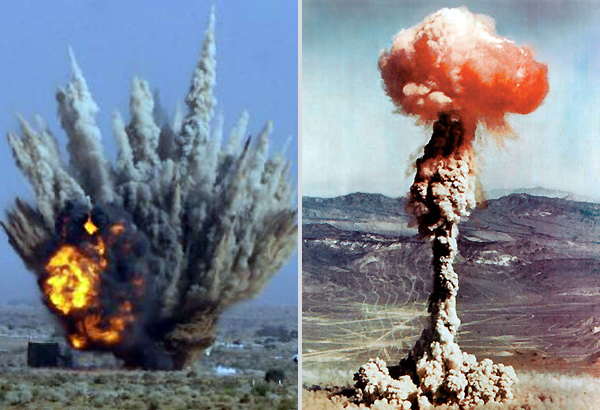New Delhi, Apr 26: More than a billion people around the world could face starvation if a nuclear war breaks out between India and Pakistan, according to a new report which said the "nuclear famine" will be an "unprecedented" disaster that would bring an end to modern civilisation.
The report released by International Physicians for the Prevention of Nuclear War (IPPNW) said a nuclear "confrontation" between the South Asian neighbours, even if it is restricted to the region, would cause major worldwide climate disruption driving down food production in China, the US and other nations.
"New evidence that even the relatively small nuclear arsenals of countries such as India and Pakistan could cause long lasting, global damage to the Earth's ecosystems and threaten hundreds of millions of already malnourished people demands that action be taken," said Ira Helfand, author of the study.
The study 'Nuclear Famine: A Billion People at Risk—Global Impacts of Limited Nuclear War on Agriculture, Food Supplies, and Human Nutrition' found that mass famine deaths would likely be unavoidable.
Helfand said the "needless and preventable deaths of one billion people over a decade would be a disaster unprecedented in human history. It would not cause the extinction of the human race, but it would bring an end to modern civilisation as we know it."
"The grim prospect of nuclear famine requires a fundamental change in our thinking about nuclear weapons," said Helfand in the study, which was also released by IPPNW's US affiliate, Physicians for Social Responsibility (PSR).
Helfand, IPPNW's North American vice president, worked with data produced by scientists who have studied the climate effects of a hypothetical nuclear war between India and Pakistan.
Helfand and a team of experts in agriculture and nutrition determined that plunging temperatures and reduced precipitation in critical farming regions, caused by soot and smoke lofted into the atmosphere by multiple nuclear explosions, would interfere with crop production and affect food availability and prices worldwide.
The study found that a limited regional nuclear weapons exchange between India and Pakistan would result in decline in US corn production by an average of 10% for an entire decade, with the most severe decline - 20% - occurring in the fifth year after such a war.
Soybean production would decline by about seven per cent. China would also see a significant decline in its middle-season rice production.

